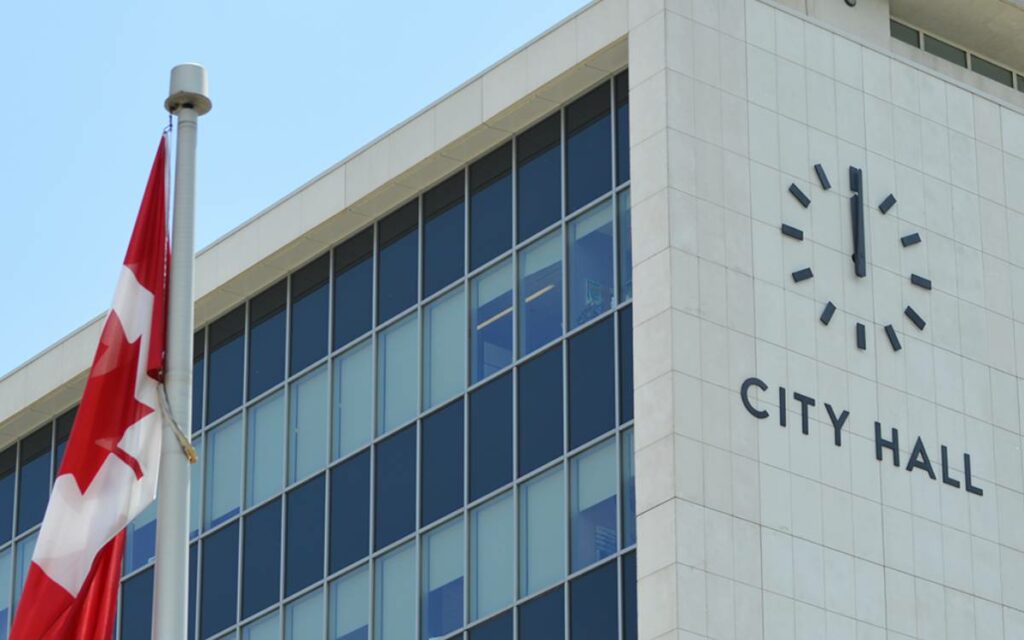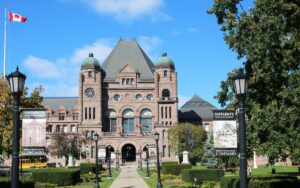
Hamilton City Council could help facilitate full transparency during the Red Hill Valley Parkway Inquiry by removing the legal obstacle of solicitor-client privilege. Photo credit: City of Hamilton
The Judicial Inquiry into the Red Hill Valley Parkway (RHVP) is set to begin its public hearings on April 25.
A question of privilege will be one of the first things to be determined at the onset of the inquiry. Should the City of Hamilton’s solicitor-client information be publicly disclosed?
The greater question is: does City Council honestly believe in open and transparent government and is it willing to find the truth about the Red Hill Valley Parkway? If it is, Council can easily remove the legal obstacle of privilege, as is its discretion under Hamilton’s own Rules of Procedure and Code of Conduct.
What’s happening?
Upon the receipt of a previously undisclosed 2013 “friction” report, related to the highway’s surface, Hamilton City Council authorized a judicial inquiry into the Red Hill Valley Parkway (RHVP). Approximately three years later, the scheduled public hearings will finally commence on April 25. The public hearings will hear from witnesses representing the City, Ontario Ministry of Transportation, Dufferin Construction, and Golder Associates.
See part one: what you need to know before public hearings begin.
However, the judicial inquiry itself has experienced several bumps in the road. First, the cost to conduct the inquiry was initially estimated by city staff to cost $5 to $7 million. To date, the costs have escalated to $13.2 million and is expected to exceed $20 million by the end of the inquiry.
Second, many applications to the inquiry were denied the right to participate by Justice Herman J. Wilton-Siegel. This included many of the victims and families who were involved in motor vehicle collisions while travelling on the RHVP and were subsequently injured, killed, and/or faced financial and emotional harm.
The latest issue the inquiry will face is the question of privilege. In other words, the City of Hamilton appears to be attempting to conceal documents by making them inadmissible to the inquiry. The documents involve legal advice the City received from its lawyers, known as solicitor-client privilege.
The question of privilege
To understand the issue of privilege, specific rules need to be identified. Under Section 33(3) of the Public Inquiries Act, the Commissioner (Justice Herman J. Wilton-Siegel) requested that the City of Hamilton produce all documents relevant for the inquiry, as defined in the City’s own Terms of Reference. Given that some of the documents are considered privileged by the City (referring to solicitor-client information), the question is whether these privileged documents should be admissible to the inquiry and examined by the participating parties.
Initially, the lawyers representing the City of Hamilton withheld approximately 1,000 relevant documents on the basis that the documents were subject to legal privilege and are inadmissible in the hearing stage of the inquiry pursuant to section 33(13) of the Public Inquiries Act, 2009. In response, the Commission’s lawyers advised the City that they did not agree with the City’s assertions of privilege, claiming that the City waived privilege over all documents relevant to the inquiry.
The City then forwarded a “majority” of the privileged documents, but not all. City lawyers then filed a motion to the inquiry seeking Justice Wilton-Siegel to appoint a “Designate” in order to determine if the documents are indeed privileged. The City proposes that the Designator’s review of the documents be held “in camera”, thereby preventing the public from viewing any of the relevant discussions and associated legal arguments.
With the City’s motion, the hypocritical nature of the City’s position on privileged documents is on full display.
The City’s own lawyers may have received the “friction” report themselves. Thus, the lawyers are indeed employees of the City as referenced in the motion, which authorized the inquiry to examine. Further, the City’s motion references “all documents necessary”, which by default includes privileged documents. Further, the City’s motion asks the questions on who received the “friction” report and what were their actions, which again, could include the City’s own lawyers.
At face value, concealing the communications and actions of the City lawyers is in direct conflict with the City’s motion and the inquiry’s Terms of Reference.
However, the question of privilege can be easily remedied by City Council. In its Procedural Bylaw, which contains the Code of Conduct, City Council can waive its privilege with respect to any confidential information.
The legal manoeuvring on the question of privilege will unfortunately be the next order of business for the inquiry.
It has become muddy on who, exactly, is City of Hamilton lawyers’ client: city staff or Council? If the answer is Council, then it can easily waive privilege in alignment with its own motion and Terms of Reference.
As the legal maxim declares, “Justice delayed is justice denied.”


















